Bb6.4
It therefore seems plausible that line Bb5 was beginning
at a place where Venus as Morning star was due to return:

|
1900-07-08 |
1902-02-14 |
1903-09-17 |
1905-04-27 |
1906-11-30 |
|
189 = 148 + 41 |
45
→
360 / 8 |
260 = 188 + 72 |
9 * 13 ↔ 3 * 91 |
334 = 260 + 74 |
 |
 |
 |
 |
 |
|
Cancer |
Aquarius |
Virgo |
Taurus |
Sagittarius |
|
"May 28 (148) |
|
13 Ahaw
3 Kumk'u |
|
"Oct 25 (293) |
|
146 = 366 - 220 = 2 * 73
→ Sept 30 (273 = 3 * 91
= 9 * 13 + 12 * 13)
→
334 - 61 |
I think, however, that ideally this ought to be 2 glyphs earlier
at the time when the Full Moon reached "May 28 (148) and
λ Gemini, for in this
day
Itzam-Yeh once upon a time
had been defeated. The outline of λ is formed by the
Cancer constellation and the Spartan warriors had
shields carrying this sign → the initial letter of
Lacedaemon.
... To a casual
glance, the Pleiades cluster appears as a fuzzy patch
like a swarm of flies over the back of the bull
...
According to mythology, Alcyone and Celaeno
were both seduced by Poseidon. Maia, the eldest
and most beautiful of the sisters, was seduced by Zeus
and gave birth to Hermes; she later became foster-mother
to Arcas, son of Zeus and Callisto. Zeus also seduced
two others of the Pleiades: Electra, who gave
birth to Dardanus, the founder of Troy; and Taygete,
who gave birth to Lacedaemon, founder of Sparta.
Asterope was ravished by Ares and became mother of
Oenomaus, king of Pisa, near Olympia, who features in
the legend of Auriga. Hence six Pleiades became
paramours of the gods. Only Merope married a
mortal, Sisyphus, a notorious trickster who was
subsequently condemned to roll a stone eternally up a
hill ...
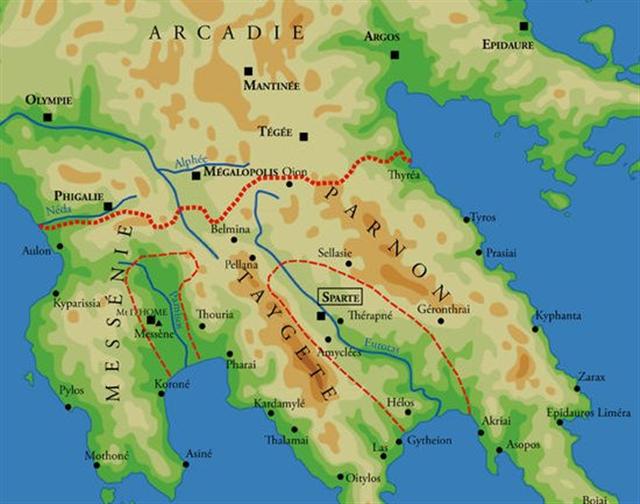
|
Egyptian
menchet |
 |
Phoenician
lamedh |
 |
Greek
lambda |
Λ (λ) |
|
... Wikipedia has no
information regarding the origin of the
Phoenician lamedh, but the Egyptian
'cloth' hieroglyph (menchet) is - I
suggest - related to the 4 upside down sky
pillars. I.e. the basic element of the
'covering' hieroglyph could have indicated
darkness:


... Men's
spirits were thought to dwell in the Milky
Way between incarnations. This conception
has been handed down as an Orphic and
Pythagorean tradition fitting into the frame
of the migration of the soul. Macrobius, who
has provided the broadest report on the
matter, has it that souls ascend by way of
Capricorn, and then, in order to be reborn,
descend again through the 'Gate of Cancer'.
Macrobius talks of signs; the
constellations rising at the solstices in
his time (and still in ours) were Gemini and
Sagittarius: the 'Gate of Cancer' means
Gemini ...
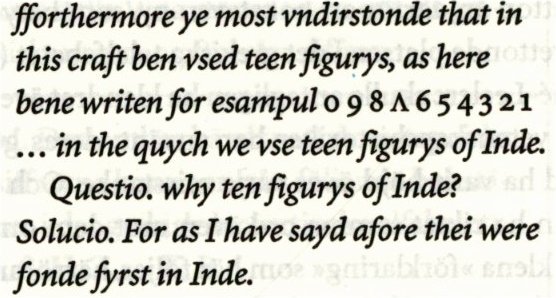

From the year 755 (when
Cancer had been at July 11 according to the
Mayas) to AD 1842 (my assumed baseline for
the rongorongo texts) there were around
(1842 - 755) / 71 = 15 precessional days.
This seems to point to the time of the Bull,
when in JANUARY 31 the old year would end
(terminate). 192 (JULY 11) - 31 = 161 (JUNE
10):
...
Midsummer is the flowering season of the
oak, which is the tree of endurance and
triumph, and like the ash is said to 'court
the lightning flash'. Its roots are believed
to extend as deep underground as its
branches rise in the air - Virgil mentions
this - which makes it emblematic of a god
whose law runs both in Heaven and in the
Underworld ... The month, which takes its
name from Juppiter the oak-god, begins on
June 10th and ends of July 7th. Midway
comes St. John's Day, June 24th, the day on
which the oak-king was sacrificially burned
alive. The Celtic year was divided into two
halves with the second half beginning in
July, apparently after a seven-day wake, or
funeral feast, in the oak-king's honour
...
... The Fijian barkcloth
that in the end captures the chief
represents his capture of the land: upon
installation, he is said to hold the
'barkcloth of the land' (masi ni vanua). The
barkcloth thus has deeper significance. In
general ritual usage, barkcloth serves as
'the path of the god'. Hanging from the
rafters at the rear, sacred end of the
ancient temple, it is the avenue by which
the god descends to enter the priest ...
There is still more to the barkcloth. The
barkcloth which provides access for the
god/chief and signifies his sovereignity is
the preeminent feminine valuable (i yau)
in Fiji. It is the highest product of
woman's labor, and as such a principal good
of ceremonial exchange (soolevu). The
chief's accession is mediated by the object
that saliently signifies women ... |
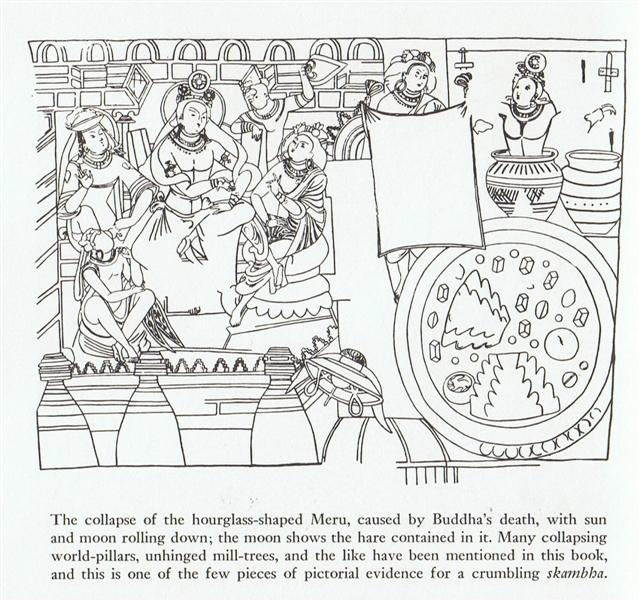
|
Dec 31 |
Jan 1 (366) |
2 |
3 |
4 |
 |
 |
 |
 |
 |
|
Bb4-34 (2 * 288) |
Bb4-35 (366 - 210) |
Bb4-36 |
Bb4-37 |
Bb4-38 (20 * 29) |
|
te ika vaha mea kua
mau - i to maro |
e ika e vaha mea |
kua hakaroa |
ki te tagata haga i
tona ohoga |
te inoino - ma te hoi
atu |
|
τ
Puppis (102.2),
ψ7 Aurigae (102.4)
*61.0 = *102.4 - *41.4 |
Mash-mashu-sha-Risū-9 (Twins of the
Shepherd)
θ
Gemini (103.0),
ψ8
Aurigae (103.2),
ALHENA =
γ
Gemini
(103.8),
ψ9
Aurigae (103.9) |
ADARA (Virgins) = ε Canis Majoris
(104.8) |
ω
Gemini (105.4),
ALZIRR (Button) =
ξ
Gemini
(105.7),
MULIPHEIN (Oaths) =
γ
Canis Majoris
(105.8),
MEKBUDA (Contracted) =
ζ
Gemini
(105.9)
*64.0 = *105.4 - *41.4 |
7h (106.5)
No star listed (106) |
|
"May 21 (141) |
22 |
23 |
24 |
25 (145 = 290 / 2) |
|
Jan 5 (370) |
6 |
7 (161 + 211 = 12 * 31) |
8 |
|
 |
 |
 |
 |
|
Bb4-39 |
Bb4-40 (161) |
Bb4-41 (11 * 53 = 583) |
Bb4-42 |
|
SYNODIC
CIRCUIT OF VENUS |
|
Morning
Star |
263 |
|
Black |
50 |
|
Evening
Star |
263 |
|
Sum |
576 = 2 *
288 |
|
8 * 73 - 2 * 288 |
|
|
ko te moa |
ma te
kotokotoga |
ko te hau tea |
kua hakaroa |
|
The Rapanui word tokotoko
means pole or staff. Sacred
ceremonial staves, such as the ua
on Rapa Nui, were called
toko in Polynesia.
Tokotoko,
stick, cane, crutches, axe helve,
roller, pole, staff. P Pau.:
tokotoko,
walking stick. Mgv.:
toko,
a pole, stilts, staff. Mq.:
tokotoko,
toótoó,
stick, cane, staff. Ta.:
too,
id. Churchill. |
|
WEZEN (Weight) = δ Canis Majoris
(107.1),
τ
Gemini (107.7),
δ
Monocerotis (107.9) |
No star listed (108) |
λ Gemini (109.4),
WASAT (Middle) = δ Gemini
(109.8)
*68.0 = *109.4 - *41.4 |
No star listed (110) |
|
... About
Carmenta we know from the
historian Dionysus Periergetis that
she gave oracles to Hercules and
lived to the age of 110 years. 110
was a canonical number, the ideal
age which every Egyptian wished to
reach and the age at which, for
example, the patriarch Joseph died.
The 110 years were made up of
twenty-two Etruscan lustra of
five years each; and 110 years
composed the 'cycle' taken over from
the Etruscans by the Romans. At the
end of each cycle they corrected
irregularities in the solar calendar
by intercalation and held Secular
Games ... |
|
July 6 |
7 |
8 (189) |
9 |
|
'June 9 |
10 (161) |
11 |
12 |
|
"May 26 |
27 |
28 (148) |
29 |
|
MAY 3 |
4 |
5 (125) |
6 |

|
Jan 9 |
10 |
11 (360 + 16) |
12 |
13 (378 → Saturn) |
 |
 |
 |
 |
 |
|
Bb5-1
(584 + 1) |
Bb5-2 |
Bb5-3
(166) |
Bb5-4 (588) |
Bb5-5
(576 + 13) |
|
Ki te manu gutu roaroa |
kua hahata ia te vaha ona |
mai tae tanu
hia te
tau moko |
e manu rere |
ki te mauga |
|
Gutu. 1.
Lips, mouth, beak,
snout (goutu); gutu ahu,
swollen lip; gutu hiti, thick lip;
gutu mokomoko, pointed lip; gutu
no, vain words; gutu pakapaka,
scabbed lips; gutu raro, lower lip;
gutu ruga, upper lip. Gutugutu,
snout. P Pau.: gutu, lip, beak, bill.
Mgv.: gutu, the chin, the mouth of a
fish. Mq.: nutu, beak, snout. Ta.:
utu, lip, mouth, beak, snout.
Gutupiri, attentively. Gututae,
attentively; gututae mekenu, a small
mouth. Gututika, tattoing on the
lips. 2. Pau.: Gutuafare, to save, to
economize. Ta.: utuafare, family,
residence. 3. Pau.: Guturoa, to
grimace, to pout. Mgv.: guturoa, to
grimace. Churchill.
Roa.
Long: haga roa, long bay, wide
beach; ara roa râkei, wide, neat
path. Roaroa, long, tall, far,
distant: tagata roaroa, tall man;
kaiga roaroa, distant land; roaroa
tahaga, middle finger. Vanaga. Long,
large, extent; roaroa, to grow,
height; mea roaroa, a long while;
roaroa tahaga, middle finger; roaroa
ke, infinite (time and space); roroa,
far, distant, thin, to grow tall; tagata
roroa, giant; roroa ke, immense;
arero roroa, to rapport, to tell;
vanaga roroa, to chatter, babbler;
vare roroa, driveller; hakaroa,
to lengthen, to defer; hakaroaroa, to
lengthen, to develop; hakaroroa, to
extend, prolong, defer, lengthen; roaga,
distance, extent, size, length, distant,
long. Churchill.
He-hahata te ava o te
henua, a crevice opened in the ground.
Vanaga.
Tanu.
To cover something in the ground with
stones or soil; to bury a corpse; tanu
kopú, to bury completely; this
expression is mostly used figuratively:
ka-tanu kopú te vânaga tuai era, ina ekó
mana'u hakaou, forget those old stories,
don't think of them again. Vanaga. To bury,
to plant, to sow seed, to inter, to implant,
to conceal; tagata tanukai, farmer;
tanuaga, burial; tanuaga papaku,
funeral; tanuga, plantation;
tanuhaga, funeral, tomb. P Pau.: tanu,
to cultivate. Mgv.: tanu, to plant,
to bury. Mq.: tanu, to plant, to sow.
Ta.: tanu, to plant, to sow, to bury.
Churchill.
Moko.
1. Lizard; moko manu uru,
figurine of a lizard (made of wood). 2.
To throw oneself on something, to take
quickly, to snatch; to flee into the depths
(of fish); tagata moko, interloper,
intruder, someone who seizes something
quickly and swiftly, or cleverly intrudes
somewhere; ka-moko ki te kai, ka-moko,
ka-aaru, quickly grab some food, grab
and catch. 3. To throw oneself upon someone,
to attack: he-moko, he-reirei, to
attack and kick. 4. Moko roa: to make
a long line (of plantation); moko poto,
to make a short line. 5. Ihu moko; to
die out (a family of which remains only one
male without sons); koro hakamao te mate
o te mahigo, he-toe e-tahi tagata nó, ina
aana hakaara, koîa te me'e e-kî-nei:
ku-moko-á te ihu o te mahigo. when the
members of family have died and there
remains only one man who has no offspring,
we say: ku-moko-á te ihu o te mahigo;
to disappear (of a tradition, a custom),
me'e ihu moko o te tagata o te kaiga nei, he
êi, the êi is a custom no longer
in use among the people of this island.
Vanaga. 1. Lizard. P Pau., Mgv., Mq.:
moko, id. Ta. moó, id. 2. To
stun, to be dizzy. PS Sa.: mo'o, to
be surprised. Hakamoko, to
accomplish. Mokohi, grain, full-grown
berry (mokoi); mokohi haraoa,
grain. Mgv.: mokohe, food.
Mokoimokoi, heart T, kidney. Mokomoko,
sharp, pointed, slender, cape, headland;
gutu mokomoko, pointed lips. Churchill.
Mgv.: mokora, a duck. Ta.: moora,
id. Churchill. ... A une
certaine saison, on amassait des vivres, on
faisait fête On emmaillotait un corail,
pierre de défunt lezard, on l'enterrait,
tanu. Cette cérémonie était un point de
départ pour beacoup d'affaires, notamment de
vacances pour le chant des tablettes ou de
la priére, tanu i te tau moko o tana pure,
enterrer la pierre sépulcrale de lézard de
sa prière ...
Maúga. 1. Last;
aga maúga o te Ariki o Hotu Matu'a, King
Hotu Matua's last work. 2. Hill, mountain.
Mouga, moúga. Last; vânaga moúga o
te Ariki O Hotu Matu'a, the last words
of King Hotu Matu'a. Vanaga. Mauga kore,
impalpable. Mouga. 1. Enough, that's
all, at last. 2. Mountain, ridge of hills;
mouga iti, hillock; tua mouga,
mountain top; hiriga mouga; hillside,
declivity, slope. P Pau.: mahuga,
mountain. Mgv.: mou, maga,
mountain. Mq.: mouna, mouka,
peak or crest of a mountain. Ta.: maua,
moua, mountain. 3. Extinction, end,
interruption, solution; te mouga o te
hiriga, end of a voyage; pagaha mouga
kore, without consolation. 4. To get.
Churchill. |
|
ALUDRA (Virgin) =
η
Canis Majoris
(111.1),
PROPUS = ι Gemini (111.4),
GOMEISA (Water-eyed) = β Canis Minoris
(111.6)
*70.0 = *111.4 - *41.4 |
ρ Gemini
(112.1),
Eskimo Nebula = NGC2392 Gemini
(112.2)
ANTARES (α Scorpii) |
Al Dhirā'-5 (Forearm)
/
Punarvasu-7 (The Two
Restorers of Goods) /
Mash-mashu-Mahrū-10
(Western One of the Twins)
CASTOR (Beaver) = α Gemini (113.4)
*113.4 = *41.4 + *72.0 |
ANA-TAHUA-VAHINE-O-TOA-TE-MANAVA-7 (Pillar
for Elocution)
υ Gemini (114.0),
MARKAB PUPPIS = κ Puppis
(114.7), ο Gemini (114.8),
PROCYON = α Canis Minoris
(114.9) |
α Monocerotis (115.4),
σ Gemini (115.7)
*74.0 = *115.4 - *41.4 |
|
...
Originally the highly born family of the
Sun, Moon, and stars dwelt in a cave on the
summit of Maunga-nui, Great Mountain,
in the ancient homeland. They were not at
all comfortable in their gloomy home for
they could not see distinctly and their eyes
watered constantly. After the Sky-father had
been elevated to his present eminence
Tane decided that the celestial family
would be happier in the sky, where they
would serve the double purpose of
ornamenting the naked body of Rangi
and giving light to the Earth-mother. Since
Papa had already been turned with her
face toward the Underworld it is difficult
to see how she would benefit by the
illumination ... |
|
July 10
(191) |
11 |
12 (6 *
29½ + 16) |
13 |
14 (*115) |
Furthermore, by counting 48 nights after December 31 (365) we
will find day 413 (= 14
* 29½):
... According to a variety of sources
of the legend, the Argo was said to have been
planned or constructed with the help of Athena.
According to other legends it contained in its prow a
magical piece of timber from the sacred forest of
Dodona, which could speak and render prophecies.
Argo Navis
is the only one of the 48 constellations listed by the
2nd century astronomer Ptolemy that is no longer
officially recognised as a constellation. It was
unwieldy due to its enormous size: were it still
considered a single constellation, it would be the
largest of all. In 1752, the French astronomer
Nicolas Louis de Lacaille subdivided it into
Carina (the keel, or the hull, of the ship),
Puppis (the poop deck), and Vela (the sails).
When Argo Navis was split, its Bayer designations
were also split. Carina has the α,
β and ε,
Vela has γ and δ,
Puppis has ζ, and so
on. The constellation Pyxis (the mariner's
compass) occupies an area which in antiquity was
considered part of Argo's mast (called Malus).
However, Pyxis is not now considered part of
Argo Navis, and its Bayer designations are separate
from those of Carina, Puppis and Vela
...
 |
 |
 |
 |
 |
 |
 |
|
(184 +
13) |
Bb5-35 |
Bb5-36
(620) |
Bb5-37
(200) |
Bb5-38 |
Bb5-39 |
(576 +
48) |
|
e tagata oho e - ki te
mea huki ka huki - te maro |
mai tae tuki te haga |
ki te henua - mai tae
rere te
toki |
ko te tagata kua oho kua
hakapura ia |
ki te henua |
kua vero te tagata |
ki te tagata hakapura i
ruga kia ia |
|
Ahi hakapura, match.
Churchill.
|
 |
84 |
 |
 |
 |
|
Nov
18
(322) |
Febr 11
(407) |
12
(413
- 5) |
Aa1-72
→
408
-
236 |
|
SCHEDIR |
SIRIUS |
SIRRAH |
ki
tona
pure |
|
Pure.
Cowrie
(Cypraea
caput
draconis);
pure
vaka,
another
type
of
cowrie,
which
can
float
on
the
sea
like
a
diminutive
boat
(vaka).
Vanaga.
1.
To
pray,
to
supplicate,
invocation,
prayer;
hare
pure,
church,
chapel;
tae
pure,
irreverence;
purega,
prayer
P
Pau.,
Mgv.,
Mq.,
Ta.:
pure,
to
pray.
In
Samoa,
Tonga,
Niuē,
Futuna,
Uvea,
pule
means
to
command.
2. A
shell
T. P
Pau.:
hakapurepure,
to
dye,
to
color.
Mq.:
pué,
the
porcelain
shell.
Ta.:
pure,
a
mark.
Purepure,
spotted,
dappled;
ragi
purepure,
dappled
sky.
Purepurea,
spotted.
P
Pau.:
hakapurepure,
to
dye,
to
color.
Mgv.:
purepure,
printed
cloth;
akapurepure,
to
paint
in
different
colors.
Mq.:
puépué,
covered
with
pale
scars.
Ta.:
purepure,
spotted,
dappled.
Churchill.
Pureva,
rock,
stone
(small
enough
to
be
thrown
by
hand).
Vanaga.
Pureva,
to
throw
a
stone.
Ta.:
Pureva,
to
be
on
the
eve
of
going.
Ha.:
puleva,
to
float
here
and
there.
Churchill.
Pau.:
Pure-hiva,
a
butterfly.
Mgv.:
pure-rehue,
id.
Ta.:
pure-hua,
a
moth.
Mq.:
pure-hua,
id.
Ma.:
pure-hua,
id.
Churchill. |
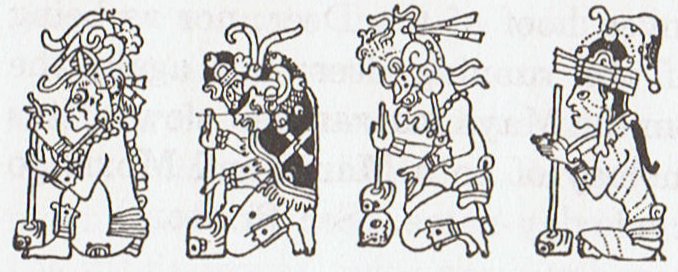
|
|
Febr 11 (42) |
12 (408) |
13 |
14 |
15 |
16 |
17 (14 * 29½) |
|
DEC 9 |
10 (408 -
64) |
11 (345) |
12 |
LUCIA |
14 |
15 |
|
CASTRA = ε Capricorni
(327.2),
BUNDA = ξ Aquarii
(327.5)
SIRIUS (α Canis Majoris) |
Mahar sha hi-na
Shahū-26 (Western One in the Tail of the
Goat)
NASHIRA =
γ
Capricorni
(328.0),
ν
Oct. (328.3),
AZELFAFAGE =
π¹
Cygni,
κ
Capricorni (328.7) |
Arkat sha hi-na
Shahū-27 (Eastern One in the Tail of the
Goat)
ENIF (The Nose) =
ε
Pegasi, ERAKIS =
μ
Cephei
(329.2),
46 CAPRICORNI, JIH (the Sun) =
κ
Pegasi
(329.3),
ι
Piscis Austrini (329.4),
λ
Capricorni (329.6),
ν
Cephei (329.7),
DENEB ALGIEDI =
δ
Capricorni
(329.8)
*288.0 = *329.4 - *41.4 |
θ
Piscis Austrini (330.1),
λ
Oct.
(330.7) |
KUH (Weeping)
=
μ
Capricorni (331.4),
γ
Gruis (331.5)
*290.0 = *331.4 - *41.4 |
No star listed (300 + 32) |
η Piscis Austrini (333.4)
*292.0 = *333.4 - *41.4 |
|
A Hydrae
(144.1)
VEGA (α Lyrae) |
Creation of our present world
UKDAH (Knot) =
ι
Hydrae (145.4),
κ
Hydrae (145.5),
SUBRA =
ο
Leonis
(145.8)
ALPHEKKA MERIDIANA
*104.0 = *145.4 - *41.4 |
5 Imix 9 Kumk'u
Rishu A.-13 (Head of
the Lion)
ψ Leonis (146.4),
RAS ELASET AUSTRALIS = ε Leonis
(146.6)
*105.0 = *146.4 - *41.4 |
VATHORZ PRIOR = υ Carinae
(147.9) |
υ¹
Hydrae (148.4),
RAS ELASET BOREALIS (Northern Head of the
Lion) =
μ
Leonis
(148.7)
*107.0 = *148.4 - *41.4 |
TSEEN KE (Heaven's Record) =
φ
Velorum
(149.9) |
ν Leonis (150.1), π Leonis (150.6) |
|
Aug 12
(224) |
13 (15 *
15) |
14 |
15 (227 →
π) |
16 |
17 |
18 |
|
"July 2
(183) |
3 (225 -
41) |
4 |
5 |
6 (187) |
7 (48 +
140) |
8 (413 -
224) |
Line Bb6 should thus begin when the Sun was at the
Roof-top, the place for the Lucky King:
 |
 |
 |
 |
 |
 |
|
Bb6-1
(25 * 25) |
Bb6-2 |
Bb6-3
(619 + 8) |
Bb6-4 (2 * 314) |
Bb6-5 |
Bb6-6
→ 360 |
|
Febr 18 (41.4) |
19 |
20 |
21 |
22
(53) |
Terminalia (419) |
|
DEC
16 (350) |
17 |
18 |
19 |
20 |
SOLSTICE |
|
Rooftop-12
(Swallow)
22h (334.8)
KAE UH (Roof) =
ο
Aquarii
(334.0),
AL KURHAH (White Spot) =
ξ
Cephei (334.4),
SADALMELIK (Lucky King) =
α
Aquarii,
AL DHANAB (The Tail) =
λ
Gruis
(334.6),
ι
Aquarii,
ν
Pegasi (334.7)
*293.0 = *334.4 - *41.4 |
ι
Pegasi (335.0),
ALNAIR (The Bright One) =
α
Gruis
(335.1),
μ
Piscis Austrini,
υ
Piscis Austrini (335.3),
WOO (Pestle) =
π
Pegasi
(335.7),
BAHAM =
θ
Pegasi (Good Luck of the Two Beasts),
τ
Piscis Austrini (335.8) |
ζ
Cephei (336.2),
λ
Cephei (336.3), -/270 Lac.
(336.7), λ Piscis Austrini (336.8) |
μ
Gruis (337.0),
ε
Cephei (337.2), 1/325 Lac. (337.3),
ANCHA (Hip) =
θ
Aquarii
(337.4),
ψ
Oct.
(337.5), α Tucanae (337.9)
*296.0 = *337.4 - *41.4 |
Al Sa'ad al
Ahbiyah-23 (Lucky Star of Hidden Things)
/
Shatabisha-25
(Comprising a Hundred Physicians)
ε
Oct. (338.1),
ρ
Aquarii
(338.2), 2/365 Lac.
(338.5),
SADACHBIA =
γ
Aquarii
(338.6),
π
Gruis (338.9) |
β/172
Lac. (339.2),
4/1100 Lac. (339.4),
π
Aquarii
(339.5)
*298.0 = *339.4 - *41.4
CASTOR (α Gemini) |
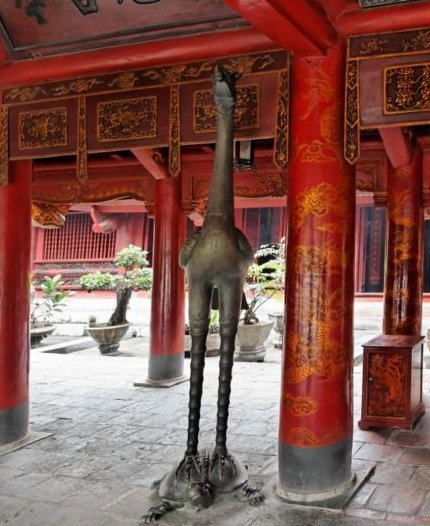 |
|
υ² Hydrae (151.8) |
Al Jabhah-8
(Forehead) /
Maghā-10
(Bountiful) /
Sharru-14 (King)
10h (152.2)
AL JABHAH =
η
Leonis (152.4),
REGULUS (Little KIng) =
α
Leonis
(152.7)
*111.0 = *152.4 - *41.4 |
λ Hydrae (153.2) |
ADHAFERA = ζ
Leonis,
TANIA BOREALIS (Northern Gazelle) = λ
Ursae Majoris, SIMIRAM = ω Carinae
(154.7) |
ALGIEBA (The Mane)
=
γ
Leonis,
q Carinae (155.5) |
TANIA AUSTRALIS (Southern Gazelle) =
μ
Ursae Majoris
(156.0),
GHOST OF JUPITER = NGC3242 Hydrae
(156.8) |
.jpg) |
|
Aug
19 (231) |
20 |
21 |
22 |
23 |
24 (8
* 29½) |
|
"July
9 (190) |
10 |
11 |
12 |
13 |
14
(195) |
The Rooftop at the Lucky King
ought to represent the House
(Carina, the
Granary)
at the top of the
Ziggurath.
|
Egyptian house |
 |
Phoenician beth |
 |
Greek beta |
Β (β) |
|
... Like the names
of most other Greek letters, the
name of beta was adopted from the
acrophonic name of the corresponding
letter in Phoenician, which was the
common Semitic word *bayt
('house').
In the system of
Greek numerals beta had a
value of 2.
... 'The traditions show that the
residences of the king were fairly
flexible. The building of new houses
was obviously the result of (male)
births in the royal family. In each
case, the house that was built last
is left to the newborn son and his
mother, together with a specific
servant, while the king has a new
and separate residence constructed
for himself ...
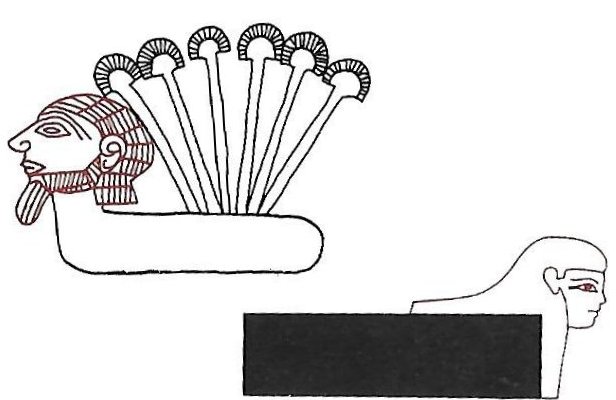 |
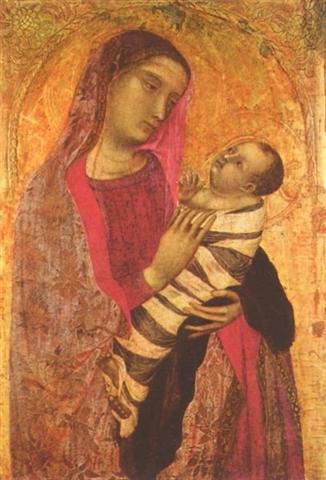
|























.jpg)

